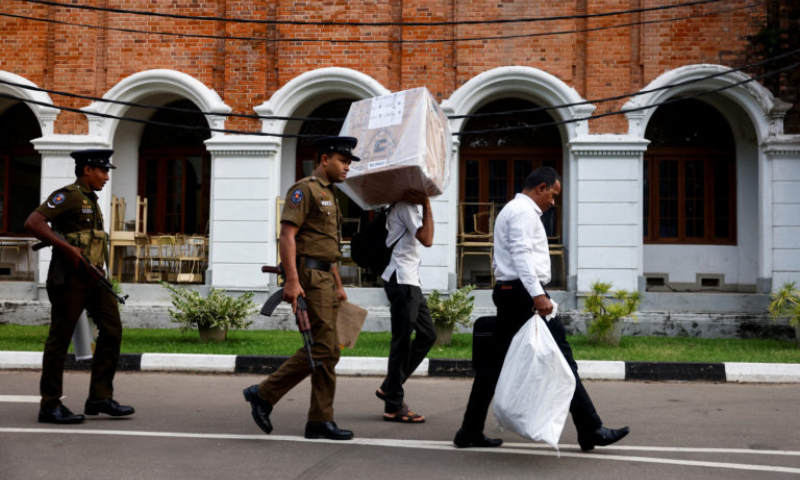COLOMBO: Sri Lanka’s presidential election has entered a historical second round of counting after no candidate achieved the required majority in the initial vote for the first time in the country’s electoral history after no candidate secured more than 50% of the votes.
As the election commission begins to tally second and third-choice votes from the electorate, the results of the first round revealed leftist politician Anura Kumara Dissanayake leading with 42.31% of the votes, while opposition leader Sajith Premadasa followed closely with 32.76%.
The election commission confirmed that all other candidates have been eliminated from contention, with their ballots now being assessed for any secondary or tertiary preferences that may benefit either Dissanayake or Premadasa.
To win, a candidate must secure at least 50% plus one vote, which could prove challenging given the tightly contested nature of this election. Held amidst the ongoing economic turmoil, this election is especially significant as it is the first since widespread protests led to the ousting of former President Gotabaya Rajapaksa in 2022.
Historically, Sri Lanka’s presidential elections have concluded after the first round, with eight previous elections since 1982 yielding a clear winner without the need for a second round. This year’s election, featuring 17 million eligible voters, has been described as one of the closest in the nation’s history.
READ ALSO: Israel Kills Top Hezbollah Leader in Beirut Strike
Dissanayake’s campaign has focused on strong anti-corruption measures and calls for good governance, resonating with voters eager for systemic change amid the ongoing crisis. His initial lead had garnered congratulatory messages from notable figures, including the foreign minister, but the latest numbers suggested a tightening race with Premadasa gaining ground.
Incumbent President Ranil Wickremesinghe trailed in third place with 17% of the votes. The new president will face formidable challenges in reviving an economy devastated by severe inflation, high public debt, and shortages of essential goods.
Sri Lanka’s foreign currency reserves have been depleted, severely impacting imports, including vital fuel supplies, while inflation has soared to an alarming 70%.
The current economic crisis has been attributed to a combination of policy missteps, declining exports, and years of under-taxation, exacerbated by the COVID-19 pandemic’s impact on the crucial tourism sector.
Political scientist Dr. Athulasiri Samarakoon from the Open University of Sri Lanka remarked, “The most serious challenge is how to restore this economy.” Wickremesinghe’s administration recently secured a $2.9 billion lifeline from the International Monetary Fund (IMF), vital for unlocking further funding, albeit tied to strict economic reforms.























